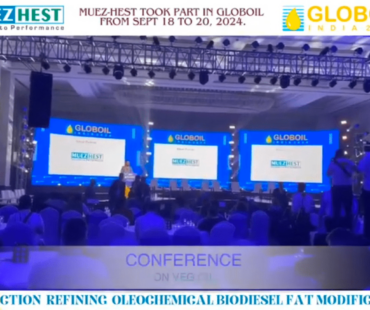What is Deodorization?
Deodorization is a critical step in the refining of edible oils designed to remove undesirable odors and flavors that may be present in the oil. This process is essential for achieving a neutral taste and smell, which is often desired in high-quality edible oils.
Deodorization is a vacuum stripping process in which effectively eliminates volatile off-flavors present in the bleached edible oil as well as those developed during high-temperature processing. This process involves passing steam, the commonly used stripping agent, into hot oil under low-pressure conditions. Deodorization is designed to ensure optimal oil quality by maintaining its nutritional value while effectively removing contaminants and undesirable flavor compounds.
This procedure Timing is critical in the deodorization process within the plant. An excessive duration may strip the oil of its essential inherent flavors, while an insufficient duration might leave behind precursors that can lead to undesirable flavor development during storage.
Process
Process of Deodorization
-
Step 1
Heat and Vacuum
The oil is first heated and placed under a vacuum. This combination helps to facilitate the removal of volatile compounds that contribute to undesirable odors and flavors.
-
Step 2
Steam Distillation
Introduction of Steam: Steam is introduced into the heated oil under vacuum conditions. The steam helps to carry away the volatile compounds that are responsible for off-flavors and odors. Distillation: The steam distillation process occurs as the steam and volatilized compounds are carried off, leaving the oil with a neutral taste and smell.
-
Step 3
Temperature and Pressure Control
High Temperature: The process typically involves high temperatures (around 200-260°C or 392-500°F) to effectively vaporize the volatile compounds. Low Pressure: The vacuum ensures that the boiling points of the undesirable compounds are reduced, allowing them to evaporate at lower temperatures.
-
Step 4
Cooling and Storage
Post-Deodorization: After deodorization, the oil is cooled and stored under conditions that prevent the reabsorption of unwanted compounds or contamination.
Advantages of Deodorization Process provided by Muez Hest
- Neutral Flavor and Odor
- Improved Quality
- Extended Shelf Life
- Advanced Technology
- Optimized Heat Management
- Faster Processing
- Reduced Energy Consumption
- Consistent Output
- Eco-Friendly Operations
- Advanced Automation
Get A Quote to discuss
your manufacturing requirements

Global Installation
Global Installation
Strategies to ensure proactive domination. At the end of the day,User generated content in real-time will have multiple touchpoints for offshoring.
-
0
Project completed
-
0
Satisfied client
-
0
Year of experience
-
0
Qualified specialist
Our Clients
We worked with royal clients


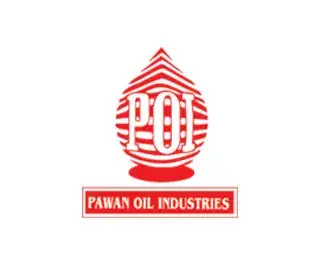



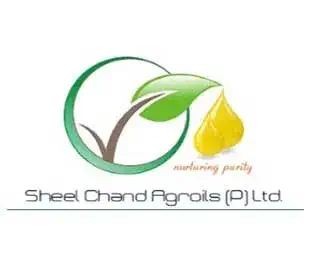
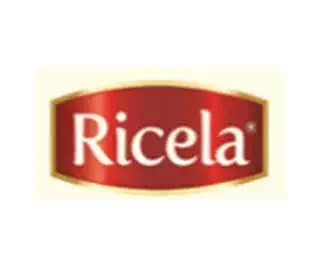
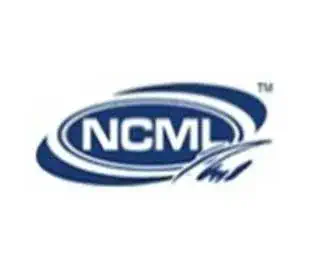







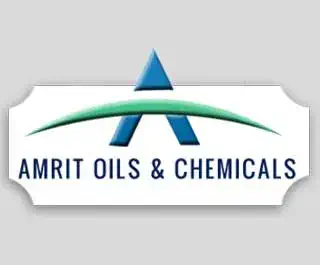
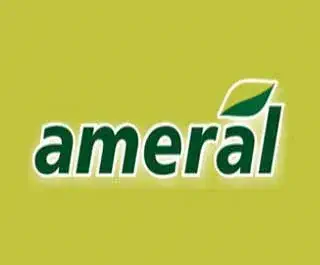




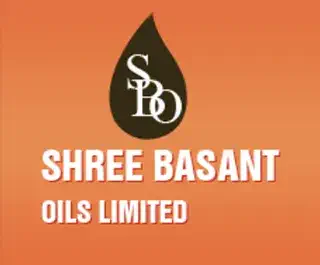
our blogs
Recent News & Articles
March 15, 2025
MuezHest Sponsoring FOIC 2025 in Mumbai
October 20, 2024
Highlights from SOPA Soyconclave 2024
Read More
Leading Deodorization Plant Manufacturers in India & Global – Muez Hest
At Muez Hest, we offer advanced deodorization systems designed to deliver pure, clean and high-quality edible oils for global markets. As a trusted name in manufacturing modern deodorizer plant solutions, we ensure that every system meets international standards for hygiene, safety and performance. Our deodorization technology helps industries remove unwanted odour, taste, free fatty acids (FFA) and impurities from oils—ensuring consistent, premium-grade output.
With our strong engineering experience and modern process control, Muez Hest has become one of the most reliable companies offering high-efficiency deodorization plant setup in India as well as globally. We design each plant to support continuous operation, low energy usage and long-lasting performance.
What Is The Deodorization Plant Process & Why It Matters
The deodorization process is a crucial step in edible oil refining. It involves using high temperatures and steam under vacuum to remove natural odours, pigments and unwanted flavours from oils. This ensures that the final product is stable, neutral and suitable for cooking or industrial applications.
Our deodorization process is important because it helps industries:
- - Remove unpleasant odour and taste
- - Improve oil purity, stability and shelf life
- - Reduce free fatty acids (FFA)
- - Enhance colour and overall product quality
- - Meet global and domestic quality standards
Muez Hest offers expertly engineered turnkey deodorizer plant systems that ensure safe, reliable and energy-efficient deodorization for all types of edible and specialty oils. With our advanced vacuum systems, heat-recovery design and precise temperature control, industries get consistent results with minimal operational cost.
Top Deodorization Plant Process
At Muez Hest, we design & setup each deodorization plant to ensure maximum purity, high efficiency and stable performance. The deodorization process begins with pre-treated oil being heated under controlled conditions. High-pressure steam is then passed through the oil under vacuum to remove odour-causing compounds and improve overall quality.
Our turnkey deodorization systems include:
- - High-efficiency packed columns or tray-type towers
- - Advanced heat-recovery modules for energy savings
- - Reliable vacuum systems for stable performance
- - Automated temperature and pressure control
- - Food-grade materials for safe operation
Each step from heating and stripping to cooling and filtration is carefully monitored to maintain purity and uniform quality. Our deodorization plants are engineered to meet the needs of edible oils, specialty oils, oleochemicals and industrial applications.
Why Choose Muez Hest for Your Deodorizer Plant
Choosing Muez Hest means partnering with a trusted leader in deodorization plant in India and global markets. We offer complete turnkey solutions that cover everything from design and engineering to installation and commissioning.
Turnkey Deodorization Solutions
We deliver fully integrated systems including design, fabrication, installation, testing and operator training.
High Product Purity & Consistency
Our advanced deodorization process ensures odour-free, neutral and high-quality oils with every batch.
Energy-Efficient Operation
We use optimized heat recovery, modern insulation and efficient steam usage to reduce energy consumption.
Custom-Built Systems
Whether your company refines edible oils, specialty fats, or industrial oils, we design the deodorizer plant according to your exact capacity and performance needs.
Safe & Sustainable Designs
All units are built with strong safety systems, food-grade materials and eco-friendly technology for long-term reliable use.
Benefits Of Partering With Muez Hest For Deodorization Solutions
Working with Muez Hest, a trusted name in designing and manufacturing advanced deodorizer plant systems, offers many advantages for industries looking to improve the quality and purity of their edible oils and specialty products. Our expertise in building high-efficiency deodorization plant in India ensures safe, reliable and long-lasting performance.
- - Fast setup with complete turnkey support – We deliver end-to-end solutions, including design, engineering, installation and commissioning, helping you set up a fully functional deodorizer plant in less time.
- - Stable and high-quality deodorization results – Our plants ensure accurate temperature control and efficient steam stripping, helping industries achieve clean, odor-free and high-purity output consistently.
- - Energy-efficient and cost-effective systems – Muez Hest focuses on modern heat-recovery systems, optimized process flow and smart automation to reduce energy consumption and long-term operating costs.
- - Reliable and proven plant technology – Each deodorizer plant is engineered with advanced safety features and robust construction to ensure smooth operation under high-temperature deodorization conditions.
- -Compliance with global and local standards – Our deodorization plant in India meets both domestic and international quality norms, helping businesses compete in global markets with confidence.
With deep technical knowledge and years of industry experience, Muez Hest ensures efficient, safe and consistent deodorization performance. We are the preferred partner for companies seeking long-term reliability, superior purification and scalable deodorization solutions.
Global Deodorization Plant Setup Steps & Muez Hest's Approach
At Muez Hest, a trusted name in designing and manufacturing advanced deodorizer plant systems, we follow a clear and professional approach to ensure smooth installation, safe operation and long-term performance. Our advanced process helps industries set up a high-efficiency deodorization plant in India and across global markets with complete confidence.
- Consultation & Requirement Analysis: We begin by understanding your product type, desired purity level, capacity requirement, temperature needs and safety guidelines. This helps us design the most efficient deodorizer plant setup tailored to your industry.
-
Design & Engineering: Our engineering team prepares complete layouts, P&IDs and process flow diagrams to ensure safe and effective deodorization. We focus on optimized heat recovery, accurate temperature control and steam efficiency to deliver clean and odor-free final output.
- Sourcing & Manufacturing: All key components — including packed columns, heat exchangers, vacuum systems and steam heating units — are manufactured in-house or sourced from trusted global suppliers. Each part is tested for durability, temperature endurance and long-term performance under high deodorization conditions.
-
Installation & Commissioning: Our skilled technicians handle full installation, testing and commissioning to ensure your deodorizer plant operates smoothly from day one. We check temperature levels, vacuum pressure, steam flow and safety protections to guarantee consistent deodorization results.
- Training & After-Sales Support: We provide operator training, technical assistance and scheduled maintenance to keep your deodorization plant running safely and efficiently. Our long-term support ensures high purity output, minimal downtime and stable plant performance.
With strong technical expertise and global experience, Muez Hest delivers reliable deodorization solutions that ensure superior product quality, energy efficiency and long-term operational success.
Your Trusted Manufacturers For Modern Deodorization Systems
Muez Hest is committed to providing advanced and reliable manufacturing & setup of deodorizer plants that help industries refine high-quality oils with purity and consistency. With strong experience, modern engineering and global project execution, we are one of the most trusted providers of deodorization plant in India.
Whether you need a new deodorizer plant setup or want to upgrade an existing unit, we deliver systems that ensure energy efficiency, controlled processing and excellent product quality.
faq
Frequently Asked Questions
Discover some of the most asked questions regarding Deodorization Plant.
What types of oils are typically deodorized?
Deodorization is commonly used for a variety of edible oils, including vegetable oils (such as soybean, canola, and sunflower oils), palm oil, and other oils that are intended for cooking or food processing.
Can deodorization remove all flavors and odors?
While deodorization effectively removes most undesirable flavors and odors, it may not remove all compounds, especially if they are present in very low concentrations or if they are particularly stable. The goal is to achieve a neutral taste and aroma that meets product specifications.
How can I ensure the best results in deodorization?
To ensure the best results, it is important to use high-quality equipment, carefully monitor and control process parameters, and conduct regular quality checks on the final product. Working with experienced suppliers or consultants can also help optimize the deodorization process.
How long does the deodorization process take?
The duration of deodorization can vary depending on the type of oil, the level of impurities, and the specific equipment used. Typically, the process can range from a few minutes to several hours.
Can deodorization be used for non-edible oils?
While deodorization is primarily used for edible oils, similar processes can be applied to other oils and fats to remove unwanted odors and flavors. However, the specifics of the process might differ based on the type of oil and its intended use.
Is deodorized oil safe for consumption?
Yes, deodorized oil is safe for consumption, provided that it has been processed according to food safety standards and regulations. The deodorization process is designed to remove unwanted flavors and odors while preserving the oil’s safety and nutritional quality.
Go To Top



